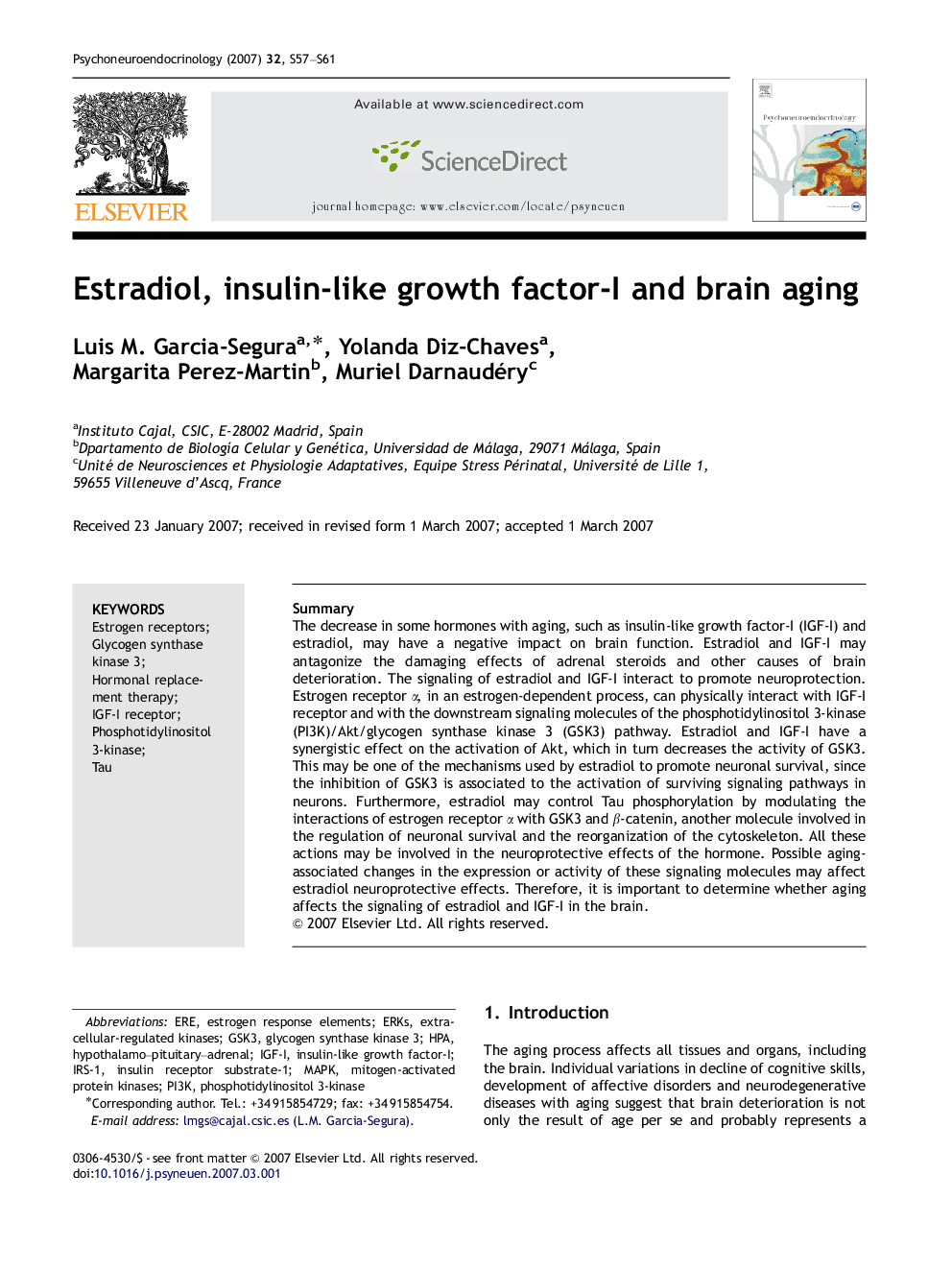| کد مقاله | کد نشریه | سال انتشار | مقاله انگلیسی | نسخه تمام متن |
|---|---|---|---|---|
| 336860 | 547229 | 2007 | 5 صفحه PDF | دانلود رایگان |

SummaryThe decrease in some hormones with aging, such as insulin-like growth factor-I (IGF-I) and estradiol, may have a negative impact on brain function. Estradiol and IGF-I may antagonize the damaging effects of adrenal steroids and other causes of brain deterioration. The signaling of estradiol and IGF-I interact to promote neuroprotection. Estrogen receptor α, in an estrogen-dependent process, can physically interact with IGF-I receptor and with the downstream signaling molecules of the phosphotidylinositol 3-kinase (PI3K)/Akt/glycogen synthase kinase 3 (GSK3) pathway. Estradiol and IGF-I have a synergistic effect on the activation of Akt, which in turn decreases the activity of GSK3. This may be one of the mechanisms used by estradiol to promote neuronal survival, since the inhibition of GSK3 is associated to the activation of surviving signaling pathways in neurons. Furthermore, estradiol may control Tau phosphorylation by modulating the interactions of estrogen receptor α with GSK3 and β-catenin, another molecule involved in the regulation of neuronal survival and the reorganization of the cytoskeleton. All these actions may be involved in the neuroprotective effects of the hormone. Possible aging-associated changes in the expression or activity of these signaling molecules may affect estradiol neuroprotective effects. Therefore, it is important to determine whether aging affects the signaling of estradiol and IGF-I in the brain.
Journal: Psychoneuroendocrinology - Volume 32, Supplement 1, August 2007, Pages S57–S61